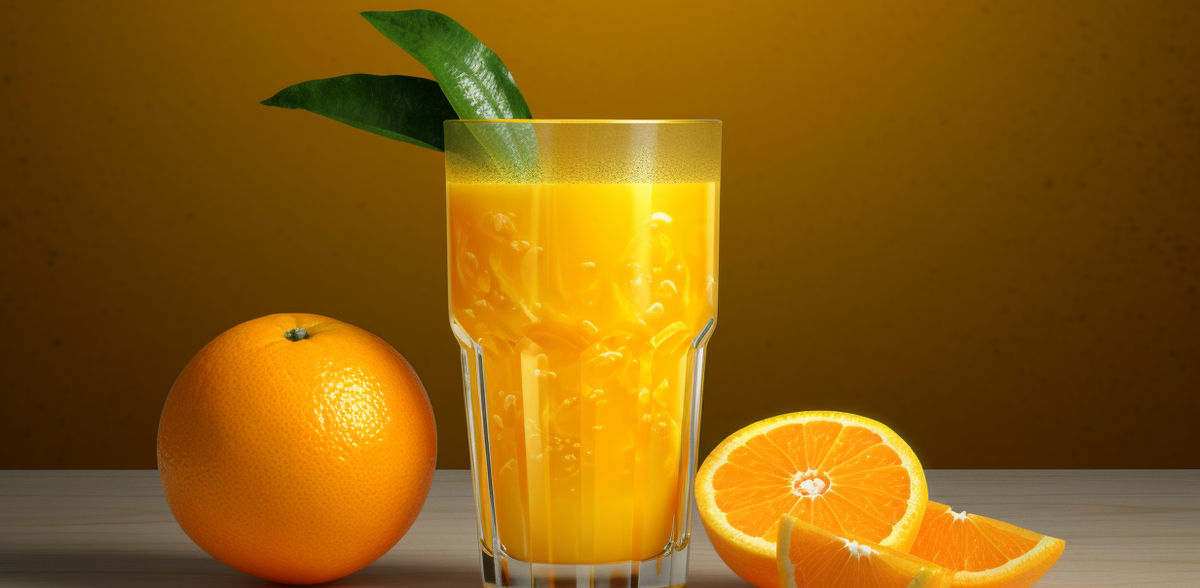Poor harvests: Orange juice becomes scarce and prices rise
Advertisement
When it comes to fruit juice, people in Germany most often opt for orange juice. Per capita consumption in 2021 was an impressive seven liters. But consumers will soon have to dig deeper into their pockets to enjoy it. Because of poor harvests, a plant disease that is rampant in Florida, and hurricanes, orange juice is currently in shorter supply worldwide than it has been for a long time. Small consolation: With fresh oranges it looks somewhat better.
The juice industry is suffering from poor harvests in numerous regions and falling stocks of orange juice concentrate in Brazil, the most important supplier country, said Klaus Heitlinger, managing director of the Association of the German Fruit Juice Industry (VdF), to the German Press Agency. On the commodity futures exchange in the U.S., orange juice concentrate is currently several times more expensive than usual, he said. "The commodity is in short supply and raw material costs are rising. This means that consumers must also prepare for orange juice to become more expensive," said the industry expert.
He is not alone in this assessment. The head of the Mönchengladbach-based juice producer Valensina, Tino Mocken, also recently painted a gloomy picture of the situation in an interview with the industry trade journal Lebensmittel Zeitung. The prices for orange juice concentrate are at record levels. Worse still: There is currently nothing to buy, the markets are empty, he described the situation.
Valensina has largely secured its own supply capability for 2023 through long-term contracts. However, Valensina will not be able to meet larger additional orders, for example because competitors are no longer able to deliver. "In the market as a whole, there is therefore a threat of bottlenecks and supply shortfalls in the summer - and further price increases," the newspaper wrote.
Boris Voelkel, head of purchasing at organic juice specialist Voelkel, does not see a quick improvement. "We are dealing more and more with weather extremes - like the drought in Italy and Spain. This will continue to get worse," he fears. In the past, he says, it often took a considerable amount of time for similar price spikes in lemon juice or raspberries to drop significantly again.
However, Voelkel, as a family business oriented towards the common good, has so far coped comparatively well with the crisis, the manager emphasized. The company is now benefiting from the fact that it has invested in long-term relationships with its suppliers and has always paid its growing partners an adequate price above the market level. In return, they have now raised prices less than the world market price would have allowed. However, the producer also benefits from the fact that it specializes in direct juices.
According to the latest market report from the U.S. Department of Agriculture, global orange production in the 2022/23 marketing year is expected to be 5 percent below the previous year's level. The slump is particularly severe in the USA, where production is even expected to fall to its lowest level in more than 56 years, experts predicted. The main reasons for this were the spread of a plant disease - known as citrus greening - and the impact of hurricanes on crop volumes in Florida. But bad weather also had a negative impact on crop volumes in Brazil, the largest orange-producing country, and in Europe, they said.
Global orange juice production is expected to fall as much as 7 percent, according to U.S. Department estimates. Stocks of orange juice concentrates are at an all-time low in Brazil, where 90 percent of EU imports come from, it said.
But there is also good news for orange fans. According to the Agrarmarkt Informations-Gesellschaft (AMI), the market situation for fresh oranges looks much better than for juice concentrate. This is because the markets for juice concentrate and for fresh produce are neatly separated. Around 90 percent of the orange juice concentrate for the EU comes from Brazil. Fresh oranges in the supermarket, on the other hand, usually come from the Mediterranean region in winter and often from South Africa in summer.
"At the moment there is no shortage of fresh oranges. The supply is not particularly abundant because of the drought in Spain, but it's not really scarce," said AMI expert Gabriele Held. Those who want to buy oranges will get them, albeit at prices slightly above last year's level./rea/DP/tih (dpa)
Note: This article has been translated using a computer system without human intervention. LUMITOS offers these automatic translations to present a wider range of current news. Since this article has been translated with automatic translation, it is possible that it contains errors in vocabulary, syntax or grammar. The original article in German can be found here.



























































